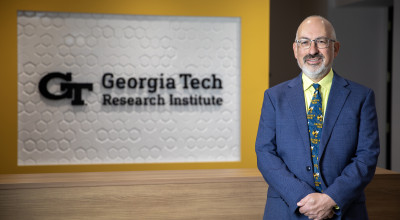The Federal Emergency Management Agency (FEMA), awarded researchers at the Georgia Tech Research Institute (GTRI) a three-year grant to develop and present hazardous materials training to strengthen and prepare communities for disasters.
This program, started in October 2016, is administered by the United States Department of Homeland Security (DHS), Federal Emergency Management Agency (FEMA), National Training and Education Division (NTED). All training is provided at no cost to the students and communities affected.
GTRI’s Environmental, Safety and Occupational Program Office began conducting hazardous materials training in 1998 and was designated an OSHA Training Institute Education Center in 1992.
Together with Alliance Solutions Group (ASG), GTRI will create and administer five unique courses to address hazards from Ammonium Nitrate (AN) storage facilities and High-Hazard Flammability Trains (HHFT). The multi-year award spans three years and the classes will be provided via live instruction and courses presented on the internet.
The proposal was in response to the National Preparedness System, Executive Order 13650, Improving Chemical Facility Safety and Security. The courses and instructors will work to improve pre-incident planning, public-private cooperation and crisis leadership to the whole community on topics concerning Fertilizer/Technical Grade AN facilities and HHFT. Course development will be guided by input from various federal, state and local subject matter experts, including the U.S. Chemical Safety Board.
“Our goal, as stated by the needs assessment and gaps analyses, is to provide safety and risk-analysis courses prior to any incidents,” said Jim Howry, Principal Research Associate. “These proposed classes will enlist the triple-tiered approach of improving technical knowledge, strengthening and sustaining the local and tribal emergency planning committees as collaborative planning organizations, and developing crisis leadership.”
GTRI and ASG proposed the following classes, to be taught nation-wide:
- AN/HHFT Risk Analysis
- HazMat/AN/HHFT Pre-incident Planning
- Effective Risk Communication among Responders and Public
- Building Whole Community Engagement
- On-scene Crisis Leadership and Decision-making
To support GTRI in the development and delivery of hazmat courses under the FEMA continuing training grant, ASG will collaborate with GTRI by providing subject matter expertise in the areas of hazardous material risk assessment methodologies, pre-incident planning, risk communication, whole community engagement and crisis leadership decision making.
ASG will work with GTRI in each step of the instructional system design (ISD) process to ensure continuity and cohesiveness of the training courses. Working closely with GTRI ISD specialists, ASG will support development of each course with industry best practices gained from working in 1,200 communities in 17 countries and 43 states, input from our network of local, state, tribal and territorial emergency managers, consensus standards and federal guidance.
National in scope and partially Web-based, the training courses will be available in all states, territories and tribes. In-person courses will be delivered in 90 communities across all 10 FEMA regions. As each course is completed and is ready for delivery, it will be posted in the NTED online catalogue.
For more information contact:
Jim Howry
Principal Research Associate
Georgia Tech Research Institute



